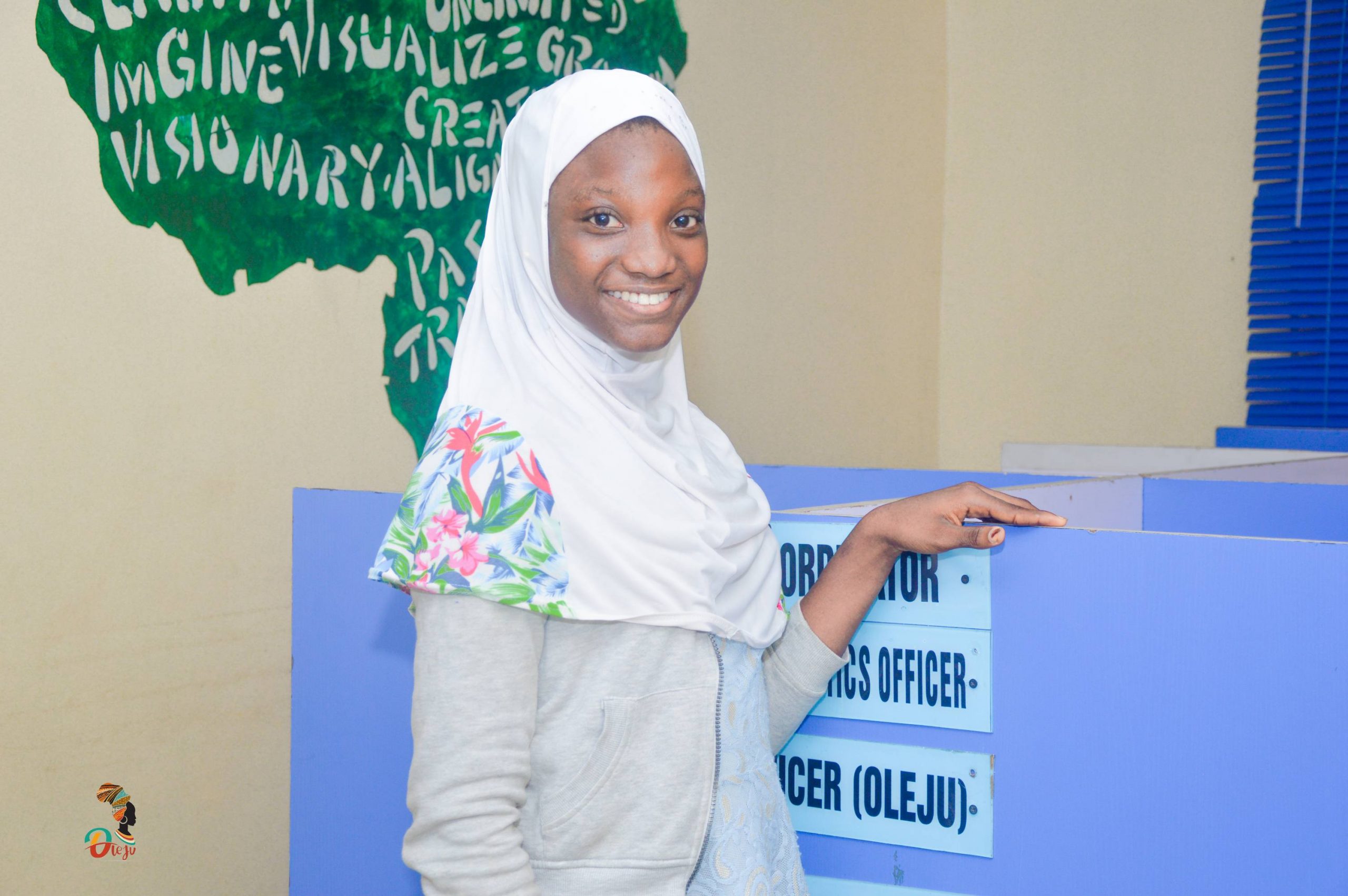Gender inequality constitutes a major barrier to realising equitable access to health-care services. Promoting gender equality is a major component in promoting the right to health for all people. For Sandra Ogholi, Executive Director of the Rural Development and Reformation Foundation (RUDERF), this is the motivator behind the OLEJU project implemented by RUDERF. “I realised, when I visited home after graduation that most of the girls who remained in the community have become the very thing we complained about as girls; young single mothers struggling to cater to the needs of a family they did not prepare for,” she said. Coined out of a term in Itshekiri language which means ‘uncommon beauty’. Oleju is a social enterprise aiming to help rural women gain social economic growth through digital learning and financial inclusion innovations.
Jennifer Omasan is one of such young single mothers who often struggled to meet the health and nutritional needs of her two year old daughter. Surrounded by family and friends in similar circumstances, Jennifer has no formal education and limited prospects, like many of the young women in her community in Koko, Delta State where young girls have limited educational opportunities and often have poor health outcomes. One day, she heard about the OLEJU project from someone in her church and decided to sign up for the program.
RUDERF started out wanting to help girls in the communities of Delta State gain a clear picture of what female leadership looked like. The organisation attempted to achieve this with annual conferences with women from these or similar communities who have gone on to become leaders and experts in their field. Over the years however, RUDERF’s strategic approach changed as it has learned to quickly identify what worked, what didn’t work and why. Thus, their approach keeps changing to address the immediate prevailing needs of the communities where they work, leading to the conceptualisation of the OLEJU project.
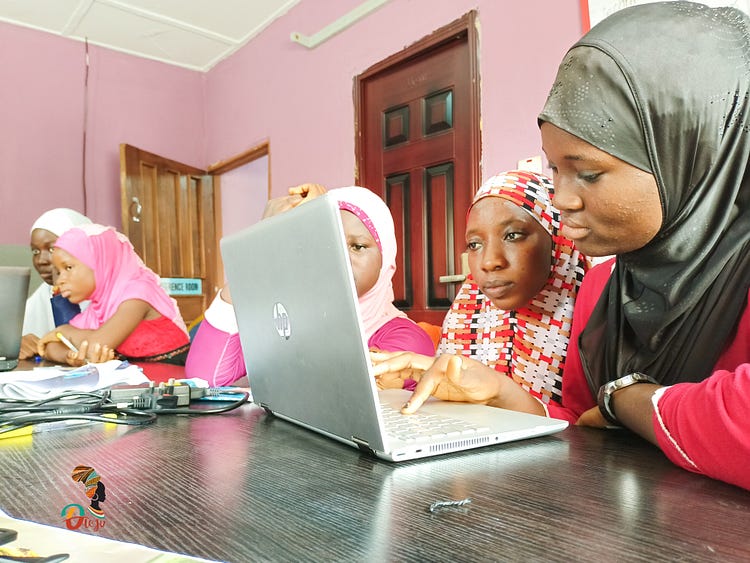
With services ranging from leadership coaching, mentorship, counselling, and referrals, RUDERF serves as an emergency centre for the myriad of needs of young girls and women in communities of Delta State.
Economic Empowerment to combat the impact of Gender Inequality on health
Evidence is clear on the impact of gender inequalities on health. According to a UNICEF report, nearly 1 in 4 girls between the ages of 15 and 19 are neither employed nor in education or training — compared to 1 in 10 boys worldwide. Such social factors, like the degree to which women are excluded from schooling, or from participation in public life, affects their knowledge about health problems and how to prevent and treat them. It then becomes clear that to improve health, we must achieve gender equality through greater equity for women and girls. A study in Zimbabwe found that women’s access to a cash-income was a positive determinant of their nutritional status.
Women in communities in Delta State are often faced with the responsibility of meeting the daily needs of their families, and so do not invest in health as the opportunity cost of feeding their family is at odds with the health needs of individual family members. It is this struggle with competing needs that the OLEJU project seeks to address. “For every women-led SME we support, we are able to help increase their earning capacity thus increasing the chances that they will invest in the health of their families because now they can extend their finances to cover health beyond their basics like feeding, a roof over their head and clothes on their back,” said Ogholi.
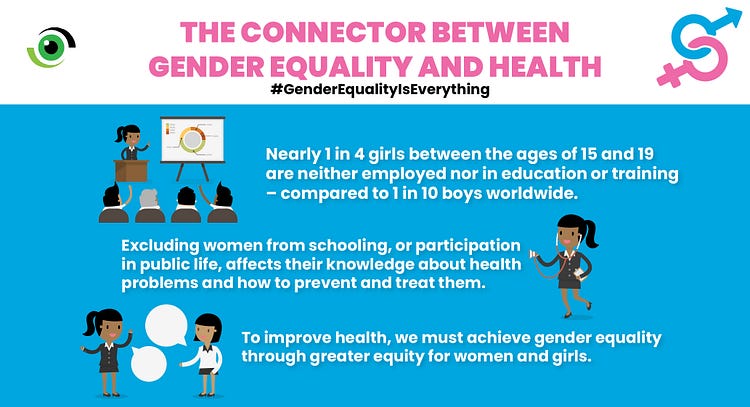
The OLEJU project provides business training and financial counselling to women-led Micro, Small and Medium Enterprises (MSMEs) in rural communities and women interested in launching MSMEs. The focus is on women because “putting money in women’s hands and improving their businesses is a long-term solution to ensure that women live better, healthy and quality lives,” according to Sandra Ogholi.
About 3,000 women and businesses have received training to set up MSMEs under the project either directly or through Community Champions. In each community, the team trains selected women known as Community Champions recruited from existing community structures. At these trainings, the Champions gain access to courses introducing them to entrepreneurship, and fund rasing. The courses are designed using language that breaks down complex information.
To promote sustainability, the Community Champion receives a Business Development Toolkit which she uses to recruit and step down training to other women in her community. This toolkit includes a workbook, the finance tracker and a digital tablet containing all of the OLEJU courses in pidgin. There are about 125 Community Champions across the 9 communities in Delta State where the OLEJU project is implemented.
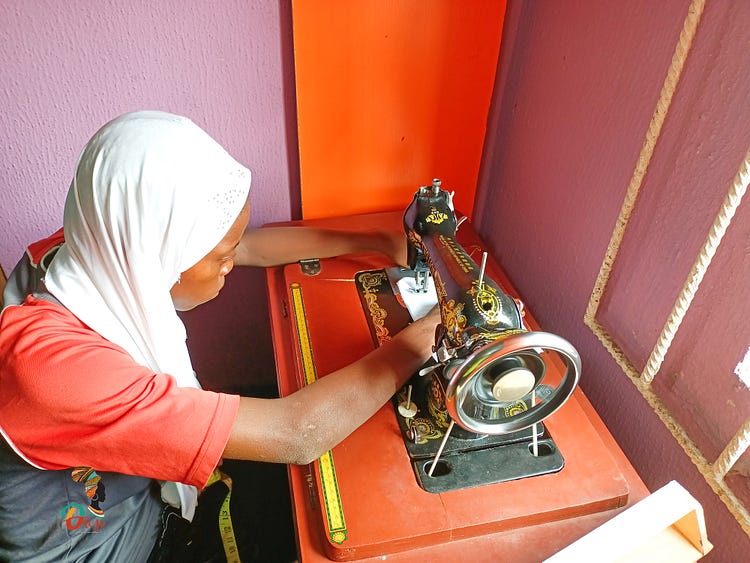
The Rough Road to Impact
Speaking on the limitations faced, the most obvious would be funding to meet the intertwined needs of the communities RUDERF serves through the OLEJU project. Sandra Ogholi shared a harrowing story of how they often encounter needs beyond their capacity. An example was Runo (not real name) who was regularly abused verbally and physically by her husband.
Deeply affected by the impact of the abuse on her children, Runo attempted suicide twice after her daughter called her a prostitute, following her father’s example. “Her situation is terrible, and we don’t have resources to relocate her because we need to get her a house, and a job somewhere so she can cater for herself, or we need to give her financial support until she can find a job but that’s a huge budget we simply do not have,”Ogholi said.
While the OLEJU project provides financial solutions digitally and can help women outside the project communities across Nigeria, the target beneficiary group for the social enterprise is unskilled women. Accessing digital services may prove a challenge since the women are initially required to fill out a digital form. Although this might be an attempt to start rural women early in digital learning, it raises the question whether women are not being excluded, due to their inability to engage with digital platforms. As the saying goes, ‘to teach an English speaker French, you may have to start with English’.
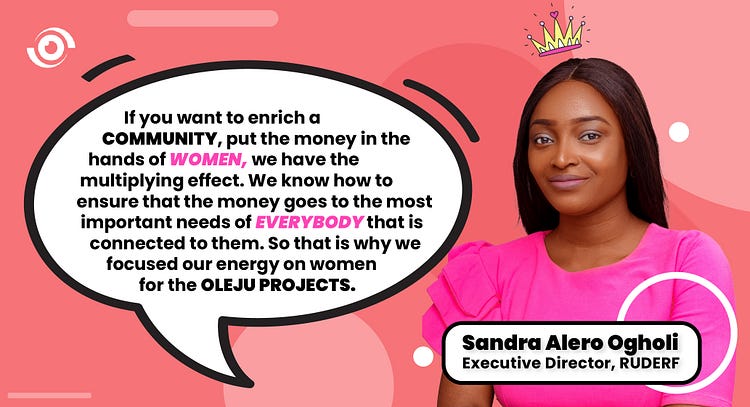
RUDERF’s strategic approach changes frequently to meet the needs of the community they serve. This seems to be working as a strength, however this may also be a limitation as one questions the sustainability of such an approach where an organisation’s core strategic plan changes so often.
It is often said at EpiAFRIC’s #HealthMeetstech Hackathons that innovations which make a difference require adaptability. It is the hope that RUDERF and the OLEJU project achieve a blend of both adaptability and structure.
Jennifer, now a Community Champion, owns a thriving leatherworks business and like other Community Champions and young women that OLEJU supports, is better positioned to change the dismal health indices of women and children in her community, providing evidence to the fact that improving health outcomes will require addressing the social determinants of health, gender being one of them.
As Nigeria and the world strengthens efforts to achieve health for all through universal health coverage, it is critical to understand that there is no UHC without gender equality, and so the nexus between gender, economic empowerment and health must be understood.
Empowering women in the economy is key to achieving the 2030 Agenda for Sustainable Development.


